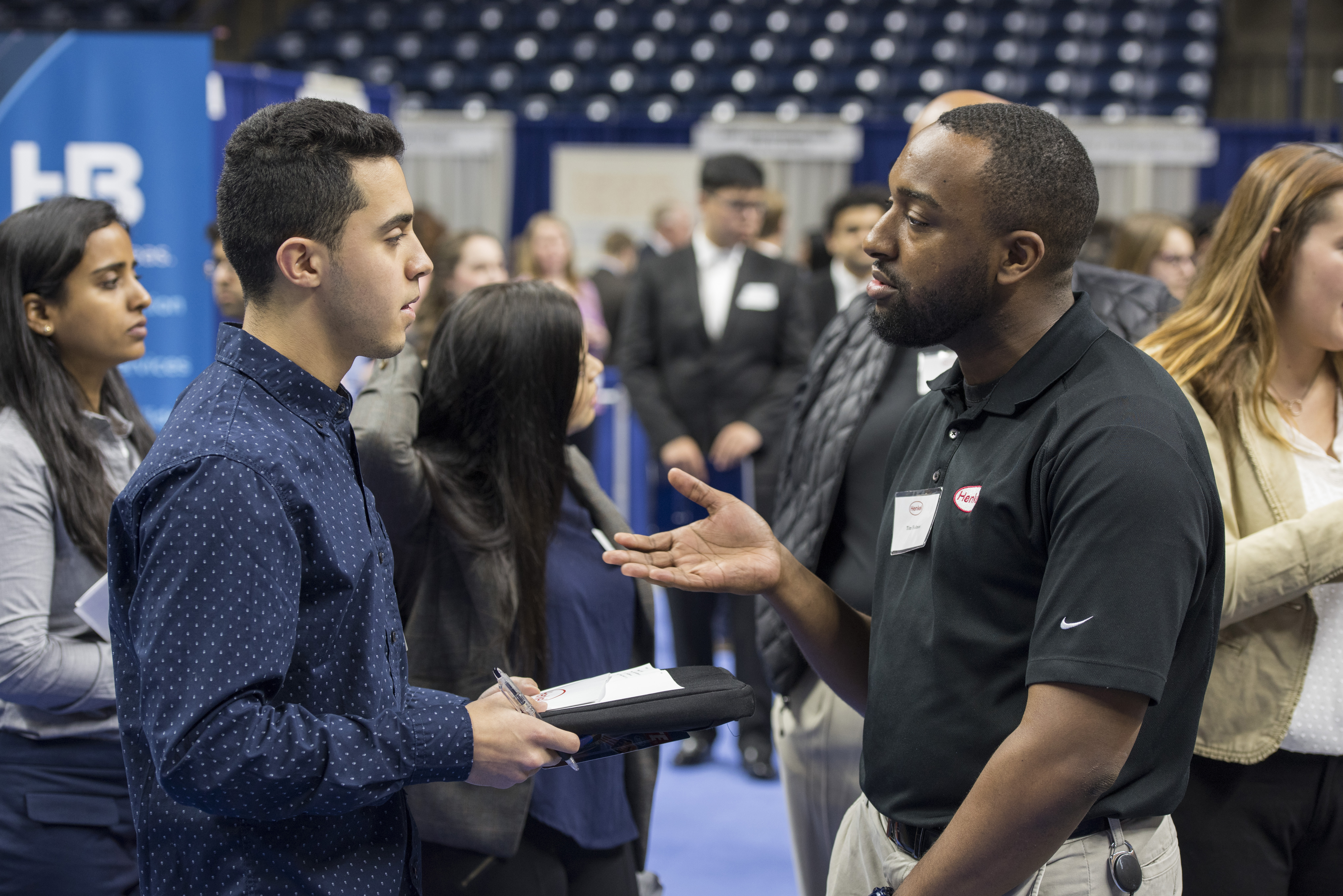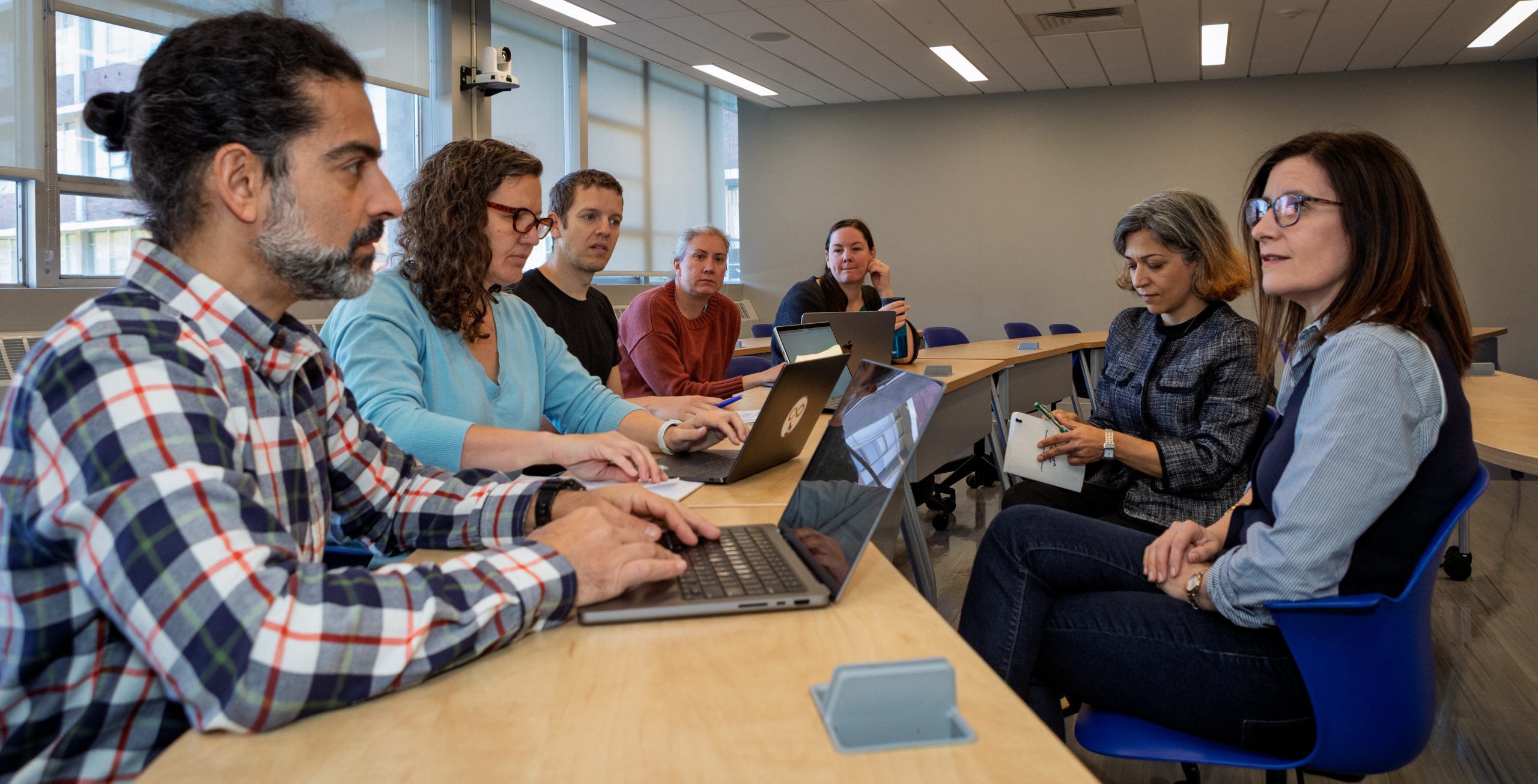John and Jane are both UConn accounting students graduating this year. They’ve taken the same courses and learned from the same professors, and they’re both finalists for the same entry-level job at a large company.
John’s grades were a bit better than Jane’s, and he has a higher overall GPA. But Jane did an internship at an accounting company, where her final project involved making a presentation to the firm’s senior leadership. She was also a leader in student government, and she volunteered at a local animal shelter on the weekends.
In this hypothetical scenario, who’s the more attractive candidate?
In today’s employment market, as hiring managers place greater emphasis on the importance of so-called “soft skills,” more often than not it’s Jane who’d get the job offer.
“The one thing employers do not resonate well with is a student who may have an extremely high GPA, but has done nothing else in their time here,” says Jim Lowe, assistant vice provost and executive director of UConn’s Center for Career Development. “Twenty years ago, I will tell you, ‘I went to class and I got really good grades’ was the name of the game. It’s not the name of the game anymore.”
Our hypothetical Jane’s out-of-classroom activities help to demonstrate to potential employers her mastery of soft skills – those somewhat intangible competencies, like critical thinking, creativity, professionalism, communication, and teamwork – that are increasingly important to hiring managers. Fifty-seven percent of senior business leaders say that soft skills are more important than hard skills, according to LinkedIn Learning’s 2018 Workplace Learning Report, a survey of more than 4,000 professionals, with creativity securing the top spot as the most valued soft skill.
In his work with students and recruiters through the Center for Career Development, Lowe sees the importance placed on soft skills every day, he says, and while soft skills aren’t a new concept, they help demonstrate a candidate’s ability to transition from the higher education environment to the workplace.
“There was a day where if somebody were looking for a computer programmer, they would only go to the School of Engineering for computer science majors,” Lowe notes. “Now, they have broadened that and said, ‘We’ll take a look at any major, because the technology is so specific to our industry, to our company, we tend to train them on the technology piece. We just want good solid talent coming in.’”
“The people who have the most creativity, great communication skills … it’s just as important as the technical skills that you get from an engineering course load,” says Daniel Murphy ’06 (BUS), senior vice president for digital engineering with the consumer financial services company Synchrony, who also recruits at UConn for the company’s information technology needs. Murphy says that most universities don’t teach the modern programming languages that his team uses for coding, making soft skills like creativity and communication critical to his recruitment efforts.
“When I speak to IT groups, a lot of what I speak about are social and professional skills,” Murphy says. “If you want to make real, big, lasting change, you need the help of others. Motivating a team to work together, and convincing your boss to support your vision to take a big swing takes more than just technical skills.”
In decades past, soft skills might have developed naturally over time, Murphy observes, as students left their dorms to interact with peers and build new friendships on a campus community. But in this era of technology, where social media and mobile communications often make continuing high school friendships easier than cultivating new relationships, the natural forces that would have helped to build soft skills may be less a part of the college experience.
While UConn’s general education requirements help expose all students to a core curriculum designed to give students a well-rounded academic experience regardless of their major, both Lowe and Murphy agree that experiences outside of academics are critical to developing the soft skills that employers are searching for.
“What we hear employers say on a regular basis is that the classroom piece is important,” says Lowe, “but it’s the experiential learning that they’re really looking at.”
Experiential learning, as Lowe refers to it, can include any learning outside a traditional college classroom. Internships, co-ops, and job shares, as well as involvement in student organizations or clubs – and taking advantage of leadership opportunities in those organizations, in particular – all help to develop the soft skills that are in demand with today’s hiring managers. Murphy agrees, adding that work experience, particularly in a team environment, demonstrates your ability to communicate, motivate, and keep others engaged.
“You need work experience, and you need to be part of a team,” he says. “UConn’s a big school. It’s easy to get lost. You have to make it a bit smaller in order to thrive.”
There are more than 600 active groups and clubs at UConn, Lowe says, and the Center for Career Development can help connect students with internships both on and off campus. He says an essential key to success at UConn, and to building soft skills that will take students into the next phase of life, is to stay engaged.
“How do you tell your story? It’s not a robust story if you only have one chapter,” says Lowe. “You want to be able to say, ‘I really engaged in life here,’ which gives the employer the sense that you’re going to engage in the culture of their company.”



